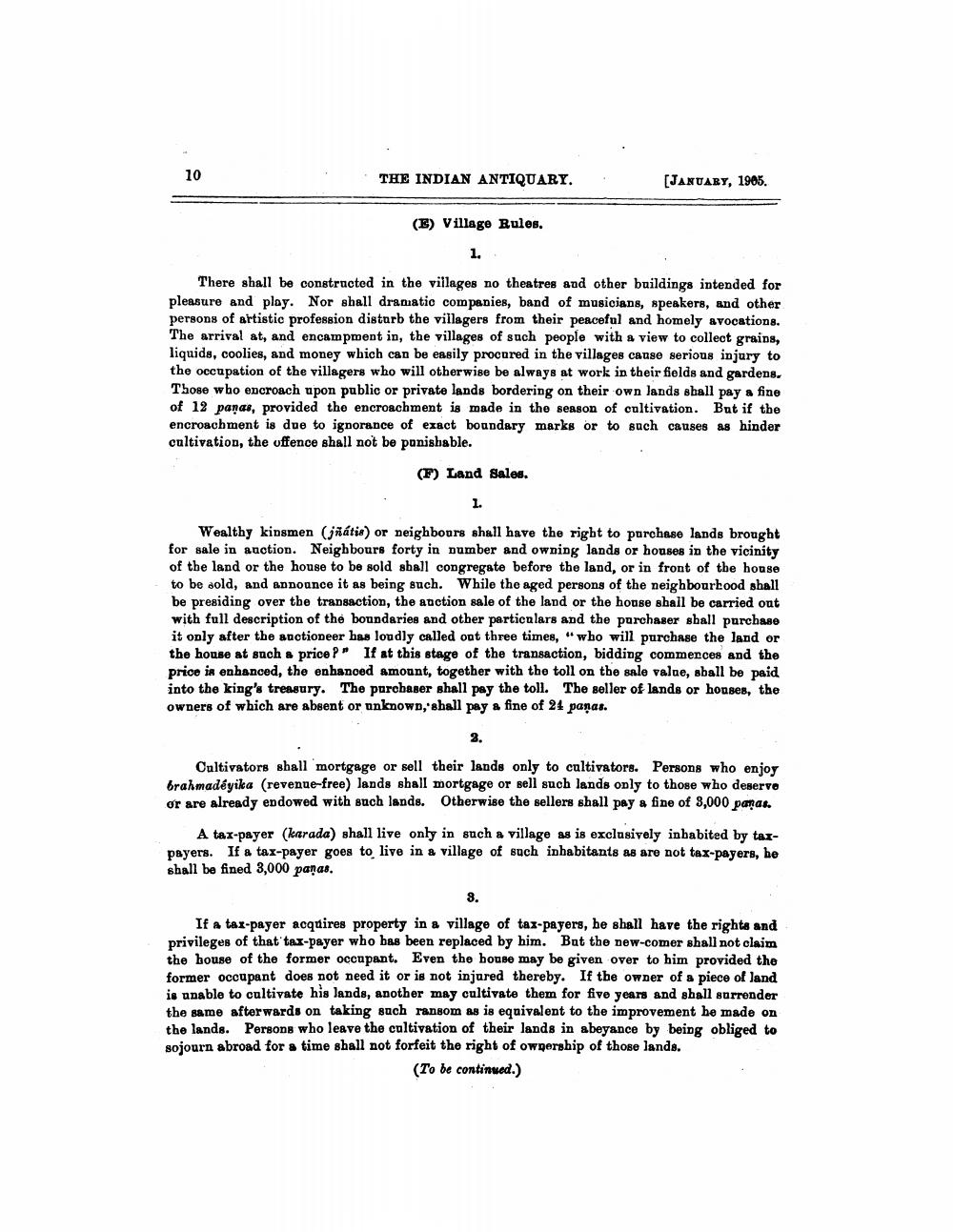________________
THE INDIAN ANTIQUARY.
(JANUARY, 1986.
(E) Village Rules.
There shall be constructed in the villages no theatres and other buildings intended for pleasure and play. Nor shall dramatic companies, band of musicians, speakers, and other persons of artistic profession disturb the villagers from their peaceful and homely avocations. The arrival at, and encampment in the villages of such people with a view to collect grains, liquids, coolies, and money which can be easily procured in the villages cause serious injury to the occupation of the villagers who will otherwise be always at work in their fields and gardens. Those who encroach upon public or private lands bordering on their own lands shall pay a fine of 12 panas, provided the encroachment is made in the season of cultivation. But if the encroachment is due to ignorance of exact boundary marks or to such causes as hinder cultivation, the offence shall not be punishable.
(F) Land Sales.
Wealthy kinsmen (jñátis) or neighbours shall have the right to purchase lands brought for sale in auction. Neighbours forty in number and owning lands or houses in the vicinity of the land or the house to be sold shall congregate before the land, or in front of the house to be sold, and announce it as being such. While the aged persons of the neighbourhood shall be presiding over the transaction, the auction sale of the land or the house shall be carried out with full description of the boundaries and other particulars and the purchaser shall purchase it only after the anctioneer has loudly called out three times, "who will purchase the land or the house at such a priceP" If at this stage of the transaction, bidding commerces and the price in enhanced, the enhanoed amount, together with the toll on the sale value, sball be paid into the king's treasury. The purchaser shall pay the toll. The seller of lands or houses, the owners of which are absent or unknown,'shall pay a fine of 24 paņas.
Cultivators shall mortgage or sell their lands only to cultivators. Persons who enjoy brahmadéyika (revenue-free) lands shall mortgage or sell such lands only to those who deservo or are already endowed with such lands. Otherwise the sellers shall pay a fine of 3,000 panas.
A tax-payer (karada) shall live only in such a village as is exclusively inhabited by tarpayers. If a tax-payer goes to live in a village of such inhabitants as are not tax-payers, he shall be fined 3,000 panas.
8.
If a tax-payer acquires property in a village of tax-payers, be shall have the rights and privileges of that'tax-payer who has been replaced by him. But the new-comer shall not claim the house of the former occupant. Even the house may be given over to him provided the former occupant does not need it or is not injured thereby. If the owner of a piece of land is unable to cultivate his lands, another may cultivate them for five years and shall surrender the same afterwards on taking such ransom as is equivalent to the improvement he made on the lands. Persons who leave the cultivation of their lands in abeyance by being obliged to sojourn abroad for a time shall not forfeit the right of ownership of those lands.
(To be continued.)




